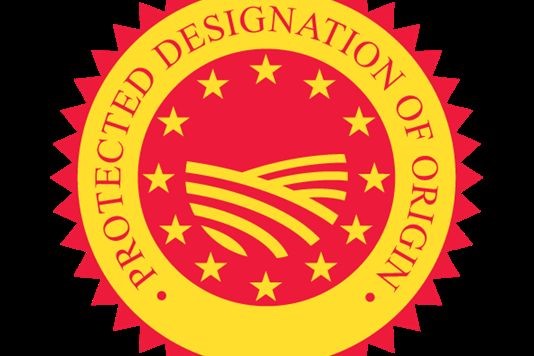
The UK has 57 products with names that are protected from imitation by EU law – but do we deserve more?
The UK has a total of 56 foodstuffs (and one wool product) that are protected under EU law from being sold as the same product anywhere else in the world. These include 15 of our cheeses, a handful of ciders, Cornish pasties and various meats and seafood.
To qualify for a protected status, a product must be linked to a specific geographical area, method of cooking or preparing, or have a ‘traditional’ character.
If a product is successfully accepted, it will be given either Protected Designation of Origin (PDO), Protected Geographical Indication (PGI), or Traditional Specialty Guaranteed (TSG) products. To understand the difference between these designations, have a read of What’s in a name? Discovering protected food names.
It’s not a competition!
In comparison to our 57 products (in total), France has 62 cheeses alone that are protected by either PDO or PGI, and 217 registered products in total. Italy has 264 items registered, and Spain has 178. Lithuania, on the very other end of the scale, has six.

To help people buy authentic produce, the logical step seems to be to ask for protection. But not that many producers seem to be applying. Right now, there are only ten applications being considered for the UK's list.
Are there problems with protection?
When the village of Stilton, Cambridgeshire was told it couldn’t produce the cheese bearing its name, it tried to change the EU’s mind and failed. The EU was already convinced of the accuracy of claims that the cheese originates from Leicestershire, Derbyshire and Nottinghamshire and had given it PDO status – so only blue-veined cheese made in those counties can legally be called Stilton. Arguments over the origin of a food are important, as a famous name can help to sell the product.
Which raises a few questions. Is the primary reason for protecting food names to cash in on popularity? Would a traditional product be put forward if it wasn’t popular, and didn’t make much money?
Cheddar, the most contentious cheese
While ‘Orkney Scottish Island Cheddar’ and ‘West Country Farmhouse Cheddar Cheese’ are protected, it’s OK to call another cheese simply ‘Cheddar’. Most of them are fine – but some taste like plastic. Should the name be restricted to a geographical area or method where producers are making a high quality product within the UK? Or is it just too ubiquitous to clamp down on this late in the day?
What additions should be made by the UK?
The full list of protected UK foods can be found here. What do you think should be added to the list? Do you have local favourites that you think need protecting from imitators?
And do you think that there are some things that shouldn’t be protected and don’t deserve their status?
Let us know what you think in the Comments below.
You might also like:
What's in a name? Discovering protected food names
Five foods named after places you'll know, and five you won't